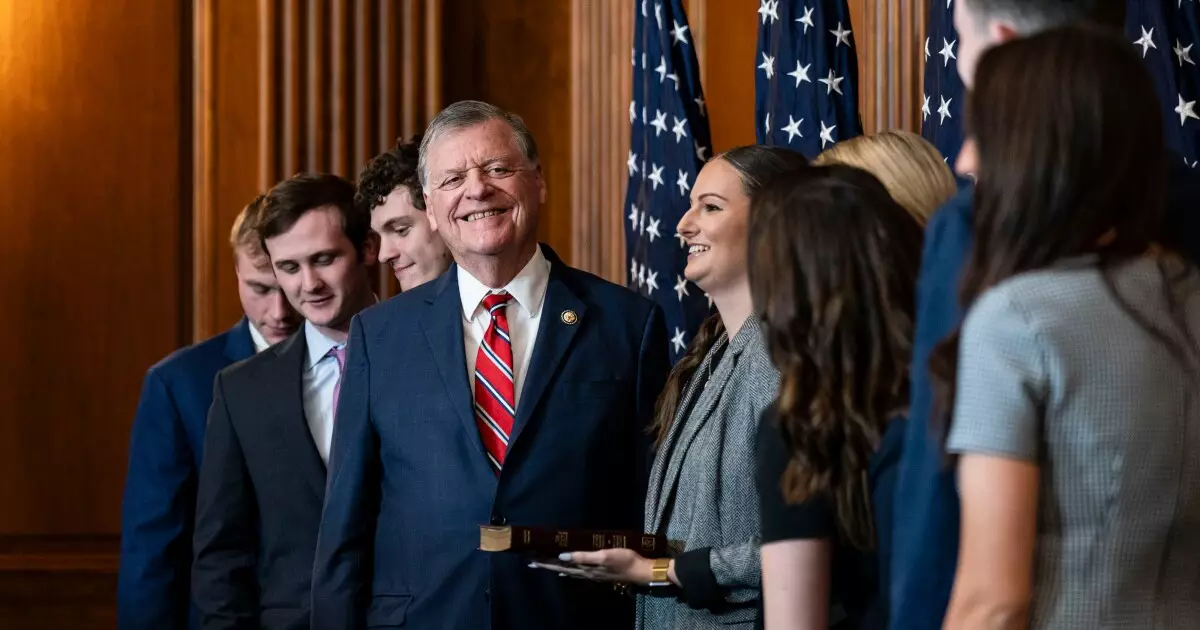As the specter of a government shutdown looms, House Republicans are readying a stopgap funding bill that promises to stave off immediate fiscal chaos but does so with worrisome implications. The urgency is palpable; a 99-page bill is set to go to a vote as soon as Tuesday, with a deadline rapidly approaching. While it’s reassuring to hear that legislators are actively seeking solutions, one must question whether this bill is merely a hasty plaster over gaping fiscal wounds rather than a genuine path to sustainable governance.
The crux of this legislation entails extending funding for the remaining fiscal year, but at what cost? The proposed measure cuts $13 billion from fiscal 2024 spending, a sleight of hand that casts doubt on the long-term stability of essential government services. This approach appears to be a temporary fix rather than a well-considered plan, paving the way for potential disruptions to critical infrastructure vital for American families and communities.
The Shortcomings of a “Clean CR”
Termed a “clean CR,” the bill admittedly contains requests from the White House that could be categorized as anomalies, indicating it’s not as pristine as some would have us believe. For instance, the legislation proposes significant allocations for FEMA and HUD, focusing on disaster relief and low-income rental assistance, respectively. While admirable, these allocations only reinforce the idea that the bill is more of a patchwork of urgent needs rather than a well-thought-out financial blueprint for America.
The advocacy for a straightforward funding solution is commendable, yet it’s troubling that this bill doesn’t address deeper inefficiencies within government spending. One might argue that a greater examination of wasteful expenditures could have yielded a better outcome. The government should not just float on funding but actively strive to improve its financial management and restructuring processes, an aspect that seems to be glaringly absent in this legislative discourse.
The Political Machinations at Play
Support from President Trump is an expected political play; it illustrates the precarious balance Republicans must maintain, which can be frustrating for voters who crave a more principled, bipartisan governance model. The reliance on party unity, as urged by Trump, casts a shadow over individual accountability among Representatives. This is an even greater concern given the need for bipartisan cooperation in the Senate, where this bill will struggle to gather the requisite Democratic votes to overcome potential filibustering.
Furthermore, the suggestion that a united Republican front on this continuing resolution will bolster their chances to advance complex tax reforms later down the line appears as an attempt to obfuscate the bill’s weaknesses. Is it not disingenuous to frame this vote as a building block for future policies when individual lawmakers must grapple with the immediate ramifications of forced cuts to earmarked projects, which, contrary to collective Republican rhetoric, serve localized community needs?
Looking Beyond the Immediate Fix
The larger picture involves more than just staving off a government shutdown. This continuing resolution reflects short-term thinking and a worrying trend of unwillingness to engage in the deeply complex, structural reforms that our government urgently requires. With sectors like transportation, healthcare, and urban development facing deep cuts, it’s a fallacy to suggest we can freeze time and merely address the symptoms rather than the underlying issues.
The looming debt ceiling and the financial cliff awaiting in April further exacerbate this tension, tying the hands of lawmakers who should be crafting thoughtful, comprehensive solutions instead of this “let’s-kick-the-can-down-the-road” strategy. If anything, the current approach solidifies the notion that both major parties prefer easy votes to difficult decisions—a sad indictment of our political culture.
House Republicans may be buying time, but one can only hope they realize that true leadership lies not in appeasing immediate crisis but in daring to confront the real challenges facing our nation. The clock may be ticking, but the band-aids must come off eventually.

